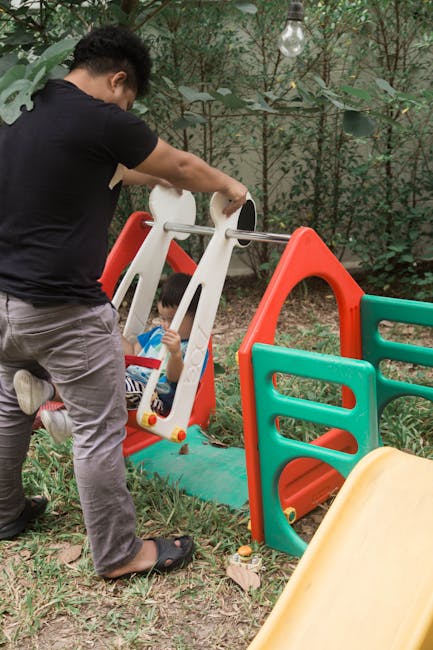How To Be Supportive Without Overstepping Boundaries?
Being supportive is a beautiful way to show you care, but it’s a fine line to walk. You want to help without making someone feel smothered or disempowered. Striking this balance is essential for maintaining healthy relationships, whether with friends, family, or partners.
If you’ve ever wondered how to be there for someone without crossing the line, keep reading. This guide will help you navigate the tricky waters of offering support while respecting boundaries.
Key Takeaways
- Boundaries are essential for healthy relationships and mutual respect.
- Educate yourself about the challenges your loved one is facing before offering help.
- Communication is key—listen more, talk less, and avoid unsolicited advice.
- Respect independence and encourage personal growth without enabling dependency.
- Take care of your own well-being while supporting others.
Understanding the Importance of Boundaries
Defining Boundaries in Supportive Relationships
Boundaries are like invisible fences that protect emotional and mental well-being. They define what’s okay and what’s not in a relationship.
For example, your friend might appreciate your advice on a tough decision but feel overwhelmed if you try to take control. Knowing where the line is drawn helps you offer support without stepping on toes.
Why Boundaries Are Essential for Healthy Dynamics
Healthy boundaries prevent resentment and burnout. They allow both parties to feel respected and valued.
Without boundaries, relationships can become one-sided or even toxic. You might feel drained, or the person you’re helping might feel suffocated.
Recognizing the Risks of Overstepping
Overstepping boundaries can damage trust. Imagine offering unsolicited advice to a friend who’s struggling, only to have them pull away.
It’s not about being perfect—it’s about being mindful. A little self-awareness goes a long way in maintaining trust and connection.

Educating Yourself About the Situation
Gaining Knowledge About the Challenges Your Loved One Faces
Before jumping in to help, take time to understand what your loved one is going through.
For instance, if a friend is grieving, learn about the grieving process. This knowledge can help you offer meaningful support without unintentionally causing harm.
Understanding the Difference Between Support and Intrusion
Support means being there when needed, while intrusion feels like prying.
Ask yourself: “Am I helping because they need it, or because I feel uncomfortable seeing them struggle?” This simple question can guide your actions.
Learning About Available Resources and Professional Help
Sometimes, the best way to support someone is by pointing them toward professional resources.
For example, if a loved one is battling addiction, you can explore this guide for tips on supporting their recovery journey.

Communicating Effectively
Practicing Open and Non-Judgmental Communication
Good communication is the backbone of supportive relationships.
Instead of saying, “You should do this,” try, “How can I help?” This approach shows you’re there to listen, not judge.
Creating a Safe Space for Sharing Feelings and Struggles
Let your loved one know it’s okay to be vulnerable.
A simple, “I’m here for you, no matter what,” can make a world of difference. It’s like opening a door and inviting them to share without fear.
Listening Actively Without Offering Unsolicited Advice
Sometimes, people just need to vent. Resist the urge to fix everything.
Active listening—nodding, maintaining eye contact, and summarizing what they’ve said—can be more supportive than any advice.

Setting and Maintaining Clear Boundaries
Identifying Your Own Limits and Comfort Zones
Supporting someone doesn’t mean sacrificing your own well-being.
Be honest about what you can and cannot do. For example, if you’re emotionally drained, it’s okay to take a step back.
Establishing Mutual Expectations with Your Loved One
Discuss boundaries openly. Ask questions like, “What do you need from me?” and “What’s the best way I can support you?”
This conversation ensures you’re on the same page.
Respecting Their Independence and Decision-Making
Remember, your role is to support, not to control.
Encourage your loved one to make their own decisions, even if you don’t agree with them. Independence fosters growth and confidence.

Encouraging Healthy Behaviors
Supporting Their Efforts Toward Growth and Recovery
Cheer them on as they work toward their goals.
Whether it’s attending therapy or pursuing a new hobby, your encouragement can be a powerful motivator.
Avoiding Enabling Behaviors That May Undermine Progress
Enabling might feel like helping, but it often does more harm than good.
For example, constantly bailing someone out of financial trouble might prevent them from learning responsibility.
Celebrating Milestones and Positive Achievements
Celebrate the small wins. A simple “I’m proud of you” can boost their confidence and keep them moving forward.

Practicing Self-Care While Supporting Others
Recognizing the Importance of Your Own Well-Being
You can’t pour from an empty cup. Taking care of yourself is not selfish—it’s necessary.
Managing Stress and Avoiding Burnout
Set aside time for activities that recharge you, like reading, exercising, or spending time with friends.
If you’re feeling overwhelmed, check out this article for tips on setting boundaries to protect your mental health.
Seeking Support for Yourself When Needed
Don’t hesitate to lean on your own support system. Whether it’s a friend, family member, or therapist, talking about your feelings can be incredibly healing.

Being Patient and Understanding
Acknowledging That Progress Takes Time
Change doesn’t happen overnight. Be patient and remind yourself that small steps are still steps forward.
Accepting Setbacks as Part of the Journey
Setbacks are normal. Instead of getting frustrated, offer reassurance.
Offering Encouragement Without Pressure
Encouragement should feel like a gentle nudge, not a shove. Let them know you believe in them, no matter what.

Recognizing Your Limitations
Knowing When to Step Back
Sometimes, the best way to help is by stepping back.
If your efforts are met with resistance, it might be time to give them space.
Understanding That You Cannot Solve Every Problem
You’re not a superhero, and that’s okay.
Focus on what you can do, and let go of what’s beyond your control.
Referring to Professionals When Necessary
If the situation is too complex, encourage them to seek professional help.
For example, this article offers insights on supporting someone through grief while respecting their boundaries.

Supporting Independence and Responsibility
Encouraging Decision-Making and Accountability
Empower your loved one to take charge of their life.
Ask questions like, “What do you think is the best solution?” to encourage critical thinking.
Avoiding Over-Involvement in Their Choices
It’s tempting to step in, but over-involvement can hinder their growth.
Trust them to make their own decisions, even if they make mistakes.
Empowering Them to Take Ownership of Their Journey
Support is about walking beside someone, not carrying them.
Let them know you’re there, but the journey is theirs to navigate.
Building a Sustainable Support System
Balancing Support with Personal Boundaries
Healthy relationships thrive on balance.
Check out this guide for tips on maintaining this balance while being supportive.
Collaborating with Other Supporters or Professionals
Teamwork makes the dream work. Collaborate with others in your loved one’s support network for a more holistic approach.
Ensuring Long-Term Healthy Relationships
Support is a marathon, not a sprint. Focus on building a relationship that’s sustainable for both of you.

Being supportive without overstepping boundaries is an art, but it’s one you can master with practice. By respecting boundaries, communicating openly, and taking care of yourself, you can be a pillar of strength for your loved ones while maintaining healthy relationships.
Remember, you’re not alone in this journey. For more tips on fostering supportive relationships, check out this article.
FAQ: How to Be Supportive Without Overstepping Boundaries? A Gentle Guide to Helping Others Mindfully
What does it mean to be supportive without overstepping boundaries?
Being supportive without overstepping boundaries means offering help, encouragement, or empathy while respecting the other person’s autonomy, preferences, and comfort levels. It’s about being present and helpful without imposing your own solutions or taking control of their situation.
How can I recognize someone’s boundaries when offering support?
Pay attention to verbal and non-verbal cues, such as their tone, body language, or direct statements. If they seem hesitant or explicitly express discomfort, it’s important to step back. Asking open-ended questions like ‘How can I help?’ can also clarify their boundaries.
What are some signs that I might be overstepping boundaries?
Signs include the person withdrawing, becoming defensive, or expressing frustration. If you find yourself pushing your advice or actions onto someone despite their resistance, it’s a signal to reassess your approach and give them space.
How can I offer emotional support without being intrusive?
Listen actively and validate their feelings without jumping to fix the problem. Sometimes, simply being there and showing empathy is enough. Let them lead the conversation and decide how much they want to share or involve you.
What should I do if someone sets a boundary I don’t understand?
Respect the boundary even if you don’t fully understand it. You can gently ask for clarification if appropriate, but avoid pressuring them to explain. Remember, boundaries are personal and don’t always require justification.
Is it okay to offer advice when being supportive?
Offering advice is okay if the person has explicitly asked for it or seems open to hearing suggestions. However, unsolicited advice can come across as dismissive or controlling. Always ask first, such as ‘Would you like my thoughts on this?’ before sharing advice.
How can I balance being supportive with taking care of my own needs?
Set your own boundaries and communicate them clearly. Supporting others should not come at the expense of your well-being. Take breaks when needed, and remember that it’s okay to say no if you’re feeling overwhelmed.
What are some examples of healthy ways to support someone in need?
Healthy ways include listening without judgment, offering practical help like running errands, or simply spending time with them. Always ask what they need instead of assuming, and respect their choices even if they differ from your own.
How can I apologize if I realize I’ve overstepped someone’s boundaries?
Acknowledge your mistake sincerely and without defensiveness. A simple apology like ‘I’m sorry if I overstepped, I didn’t mean to make you uncomfortable’ can go a long way. Commit to being more mindful in the future.
Why is it important to respect boundaries when being supportive?
Respecting boundaries fosters trust and ensures the person feels safe and valued. It empowers them to handle their situation in their own way while knowing they have your support. Overstepping boundaries, on the other hand, can damage relationships and create unnecessary tension.



